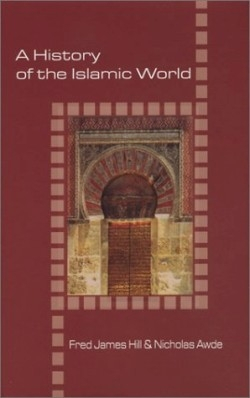A History of the Islamic World
Islam: surrender of the self to the will of God. This literal definition of a religion practiced by hundreds of millions of people sounds fearful to Western ears. But in this easy-flowing overview of the history of Islam, the reader may well find familiarity in the interplay of political and religious movements, recalling that Christianity was long a driving force in the construction of cultures. This book demonstrates that the religion of Islam, like Christianity, is subject to varying and often conflicting interpretations, and that the political history of the Islamic world is colored as much by the universal traits of human nature as by the unique features of the Islamic religion.
As a brief history, the book describes the wars, conquests, and dynasties that shaped the Islamic empire, combined with engaging stories of individual leaders and the ways their policies affected and were affected by the people over whom they ruled.
The Islamic faith, too, is sketched rather than detailed, with an emphasis on teachings that are familiar to Western readers: Muhammad condemned the single-minded pursuit of wealth so fashionable in his day, for example, insisting that all are obliged to care for each other. The Islamic prophet taught that there is one God—the same God who is worshipped by the Jews and Christians.
Inevitably, the authors—Londoners who have traveled throughout the Islamic world and written about its culture—address comparisons between Islam and the West, and provide some defense against Western fears of Islam. Describing conquests, they note that conquered non-Muslims were treated humanely, if not equally, to Muslims, and that their lives often improved under Islamic rule.
In discussions of culture, the authors focus on Islam’s contributions to the West: the Arabic numeral system and advances in medicine, for example. They provide a frank, if brief, treatment of the Muslim responsibility to participate in jihad: the struggle to defend Islam. Hill and Awde don’t back away from the fact that jihad is often implemented as outward violence against other people, but they do point out that the “greater jihad” transcends violence; it is the inner struggle for spiritual purity of the self.
The book ends with a discussion of modern politics within the Islamic world and between Islam and the West: the conflict between Israelis and Palestinians, the 2001 terrorist attacks against the United States, the wars in Afghanistan and Iraq. The latest chapter in this Western history of Islam expresses a hope for reconciliation, a demonstration that Islam and the West are not mutually incompatible. Certainly understanding, encouraged by introductory texts like this one, is a necessary first step.
Reviewed by
Bonnie Deigh
Disclosure: This article is not an endorsement, but a review. The publisher of this book provided free copies of the book to have their book reviewed by a professional reviewer. No fee was paid by the publisher for this review. Foreword Reviews only recommends books that we love. Foreword Magazine, Inc. is disclosing this in accordance with the Federal Trade Commission’s 16 CFR, Part 255.

